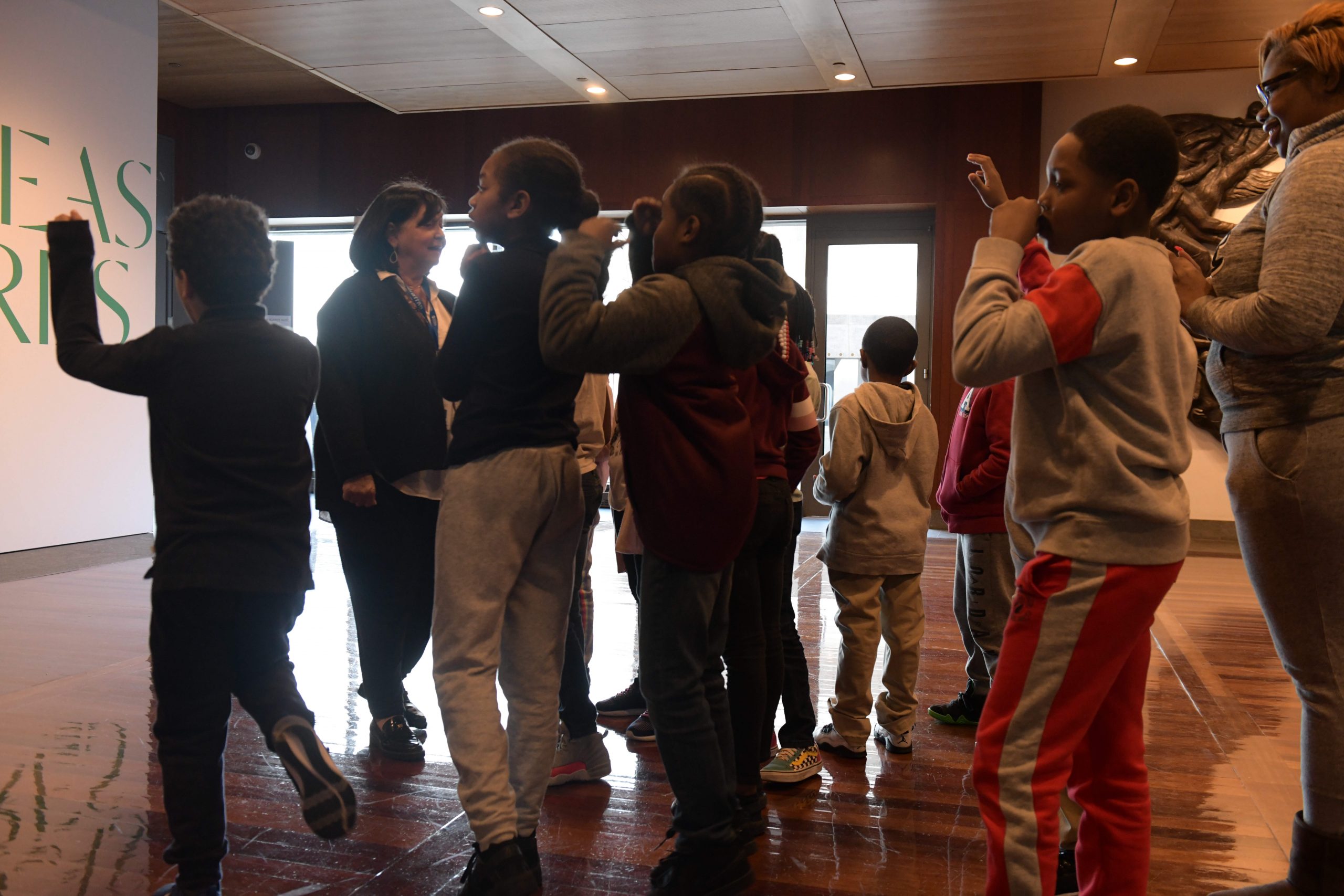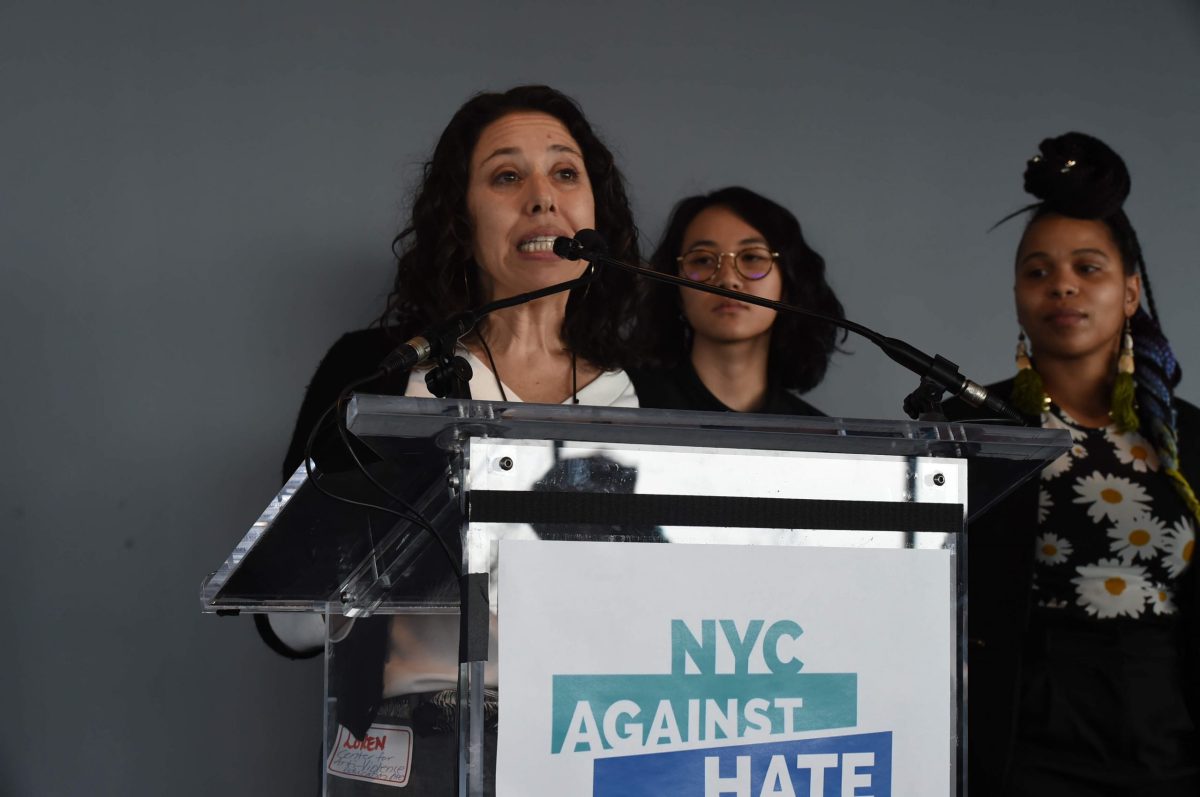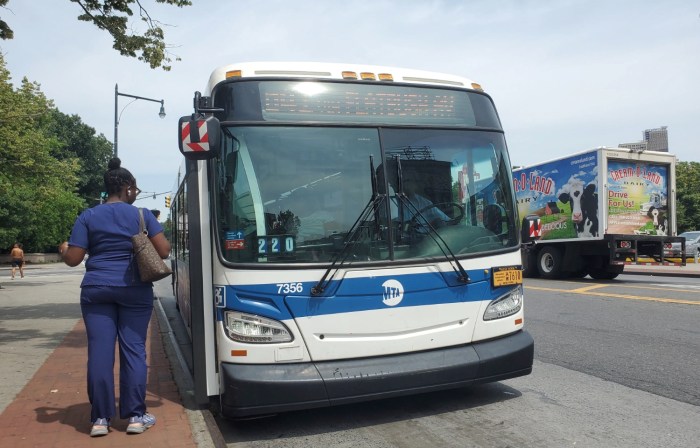Over the past year, New York City leaders have been advocating for education programs and other outreach to young people to stop the spread of hate-related violence across the five boroughs.
In reaction, a city-wide “Day Against Hate” is planned for Thursday, Feb. 13, featuring programs designed to bring concrete skills-learning and education to both change perceptions and teach skills to de-escalate ideas that lead to hate and associated violence.
A coalition called “New York City Against Hate” brings together nine groups who have stood up to hate in the city. The group has sought ways to both educate people to intervene in hateful episodes, and to educate young people on tolerance.
Some city leaders seek increased policing, stronger penalties for offenders, keeping hate offenders in jail including re-evaluation of bail reform laws and stronger laws to deter hate crimes. However, leaders of this coalition want to maintain “no cash bail for offenders and instead, offer mental health solutions that offenders can trust.”
They instead eye a long-term approach to changing attitudes — encouraging witnesses to get involved to intervene and reaching those who commit hate crimes.
Public Advocate Jumaane Williams joined City Councilmembers Brad Lander and Helen Rosenthal for the “Day Against Hate” announcement, held Wednesday at the Museum of Jewish Heritage in Battery Park.
Leaders from Jews for Racial and Economic Justice say many communities are struggling to feel safe, while some officials and community organizations have been “fear mongering” instead of finding the “root causes” of hate.
The Center will provide trainers to help groups learn to be “upstanders” to stop violence in their midst and to teach young people not to hate in the first place.
Public Advocate Williams said he was “deeply alarmed by hate crimes” and he said it was up to residents to “call it out” when you see it. He said many people instead have been “fear mongering” leading to policies that he said were counter productive and “ignores the causes of hate related violence.”
“We all must reject white nationalism and white supremacy,” Williams said, while encouraging people to get directly involved in preventing violence. “There is no shortcuts to fix our social ills and so we need a framework across the board including mental health, affordable housing, economic balance and policies that segregate people. If we are going to rely solely on the NYPD to fix things, that will not work.”
Those seeking to host a day against hate can reach out to the Center for Anti Violence Education.
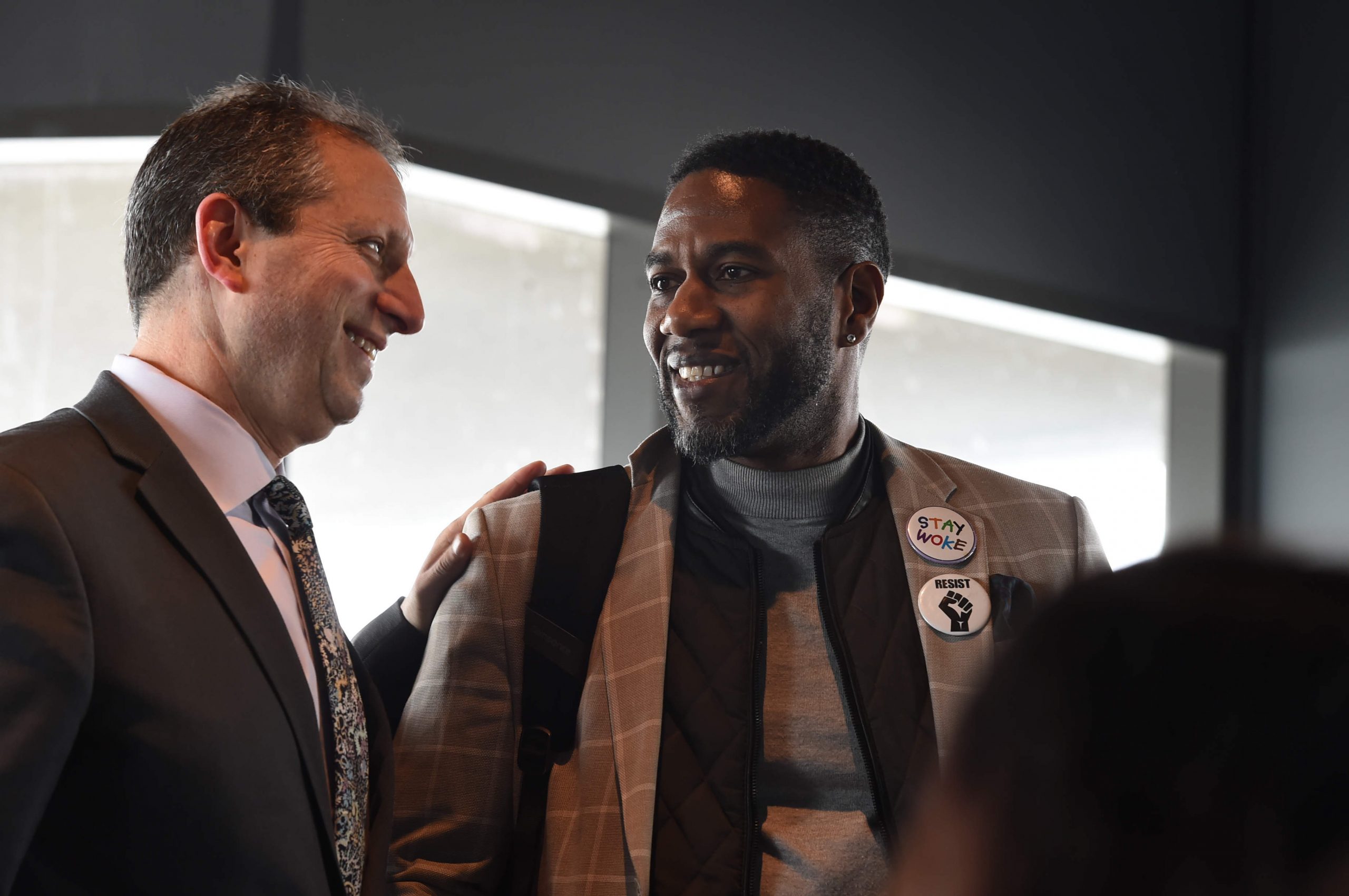
However, Williams continues to differ with some city leaders who are seeking to roll back bail reform laws because of spikes in crime, that he said was “jailing people solely because they are poor.”
People were going to jail because they were poor and couldn’t afford bail so they were losing their jobs and sitting in Rikers Island when they were not convicted,” Williams said.
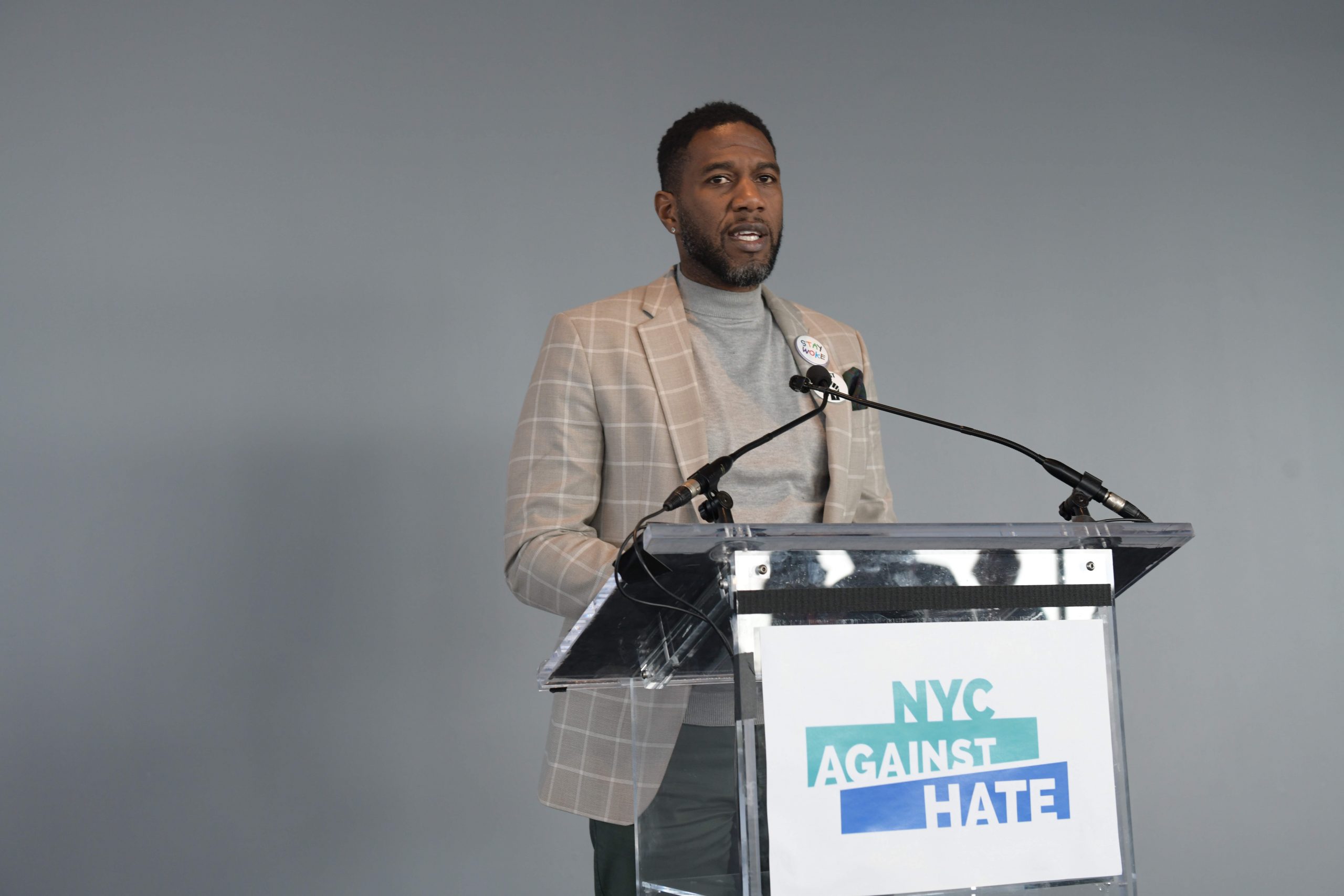
Emphasis however was on the long term solutions and leaders of these groups said the best answer to hate crimes is to invest in education and programs that teach people not to hate and to intervene when hate occurs.
“This is about long term solutions to hate and preventing going backwards because of misinformation and fear mongering by DA’s, some elected officials and Trump,” said Lauren Miller, of the NTYC Against Hsate Coalition.
Leo Ferguson, a movement organizer for JRCJ said putting more people in jail has “not ended the violence.” He also said bail reform had “no correlation to the change in crime rates,” saying he did not believe that hate related crimes should be excluded from the bail reform.
One activist said, “You can hold someone on Rikers Island, not convicted, costing $70,000 a year and the case may not even come up for two years – even though more people are put in jail, the violence is not ending.”
Meanwhile, the Museum itself provides tours of their facility to children, many of their guides being Holocaust survivors or family members. A group of children were in the museum on this day, the guide talking about Jewish cooking and asking the children about what they eat before going into see the horrors of the Holocaust.
